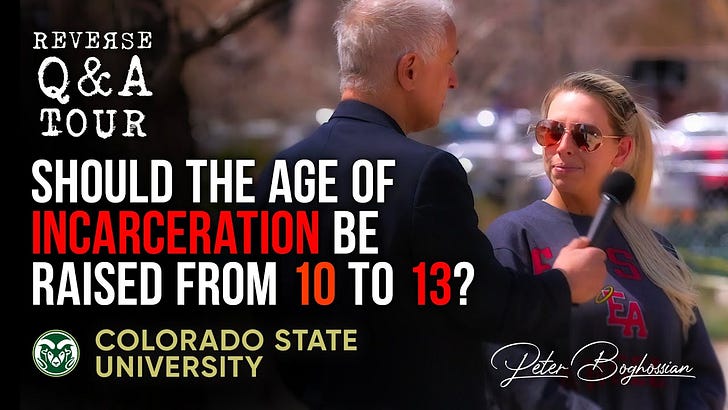On April 26, the Reverse Q&A team visited Colorado State University in Fort Collins. A hot topic on campus was Colorado House Bill 1131, a proposal to reduce justice involvement for young children by raising the minimum age for prosecution from 10 to 13. One claim we presented on campus was: “The age of incarceration should be raised from 10 to 13.”
The arguments from students in this video indicate they may not be aware of the homicide exception in HB 1131. The original bill made an exception for cases of homicide by youth under 13, and in revision, added an exception for violent sexual assaults. It’s possible the students would have argued different points if they were aware of these details.
The aim of these epistemological activities is to encourage people to consider the framework of their thinking, the reasoning behind their opinions, and to accurately calibrate the confidence in their beliefs. Determining how these beliefs align with reality is not the primary goal. Still, it’s always interesting to consider how they do.
Discussion about this post
No posts



There is overwhelming evidence that the certainty of punishment is a far better detriment than the severity. In about 1997 I was stopped for speeding in Los Angeles; I was allegedly going one mile per hour over the speed limit downhill on an Interstate. I had drunk one non-alcoholic beer, but smelled the same as though I had drunk a case of Budweiser. The clinching argument was that I couldn't pass a roadside sobriety test. I had not been able to do so since suffering a stroke at age 30.
Breathalyzer on the spot showed zero alcohol; so did breathalyzer at the station. The police decided to let the judge sort it out. Drunken driving charged dismissed, I plead guilty to speeding, suspended fine.
Ever since then I have eschewed alcohol-free beer if I will be driving. It was the certainty, not severity, that convinced me.